Search titles
Displaying results 221 to 230 of 628.
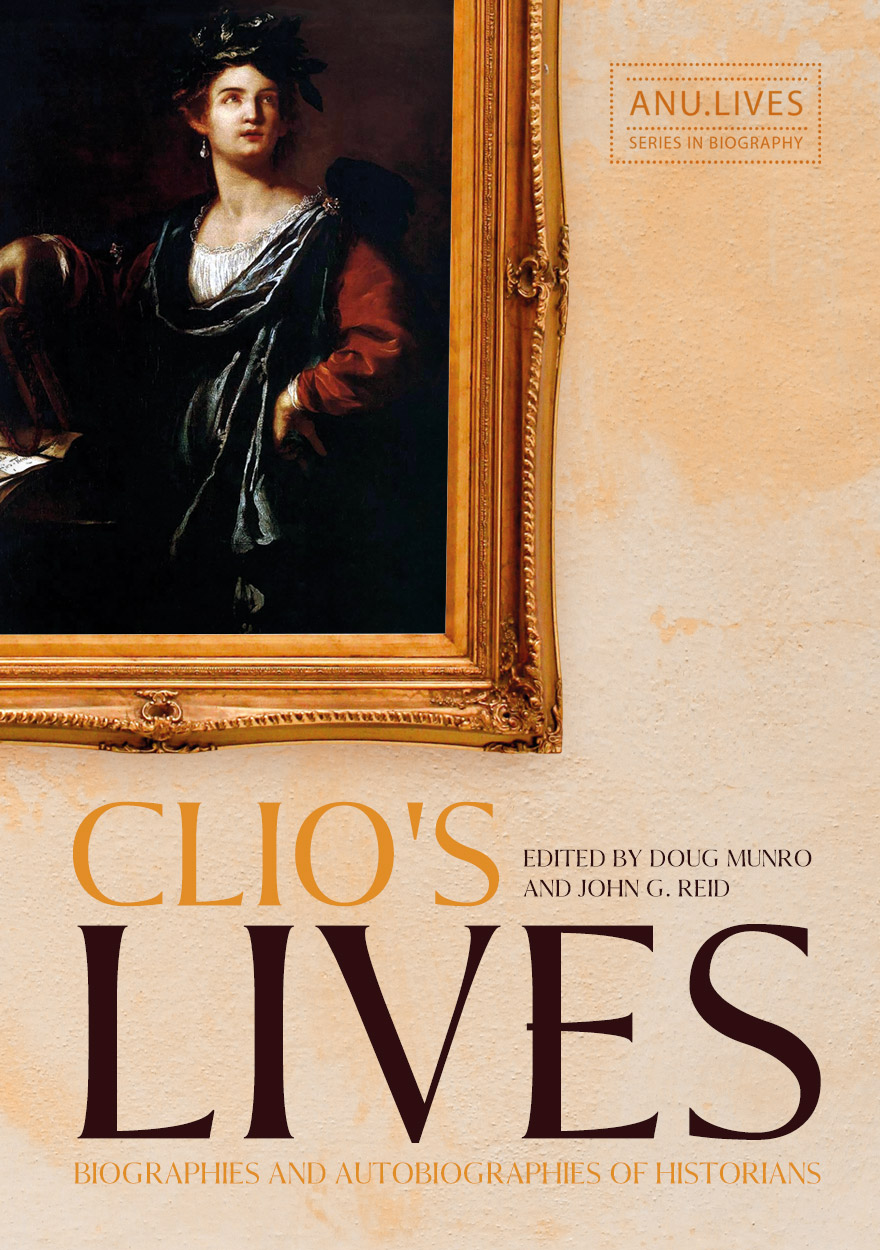
Clio’s Lives »
Biographies and Autobiographies of Historians
Edited by: Doug Munro, John G. Reid
Publication date: October 2017
Including contributions from leading scholars in the field from both Australia and North America, this collection explores diverse approaches to writing the lives of historians and ways of assessing the importance of doing so. Beginning with the writing of autobiographies by historians, the volume then turns to biographical studies, both of historians whose writings were in some sense nation-defining and those who may be regarded as having had a major influence on defining the discipline of history. The final section explores elements of collective biography, linking these to the formation of historical networks. A concluding essay by Barbara Caine offers a critical appraisal of the study of historians’ biographies and autobiographies to date, and maps out likely new directions for future work.
Clio’s Lives is a very good scholarly collection that advances the study of autobiography and biography within the writing of history itself, taking theoretical questions in significant new directions. The contributors are well known and highly respected in the history profession and write with an insight and intellectual energy that will ensure the book has considerable impact. They examine cutting-edge issues about the writing of history at the personal level through autobiography and biography in diverse and innovative ways. Together the writers have provided reflective chapters that will be widely read for their impressive theoretical advances as well as being inspirational for new entrants to the disciplinary area.
— Patricia Grimshaw, University of Melbourne
Clio’s Lives brings together a most interesting and varied cast of contributors. Its chapters contain sophisticated and well-penned ruminations on the uses of biography and autobiography among historians. These are clearly connected with the general themes of the volume. This delightfully mixed bag makes very good reading and, as well, will serve as a substantial contribution to the study of the biography and autobiography.
— Eric Richards, Flinders University

German Ethnography in Australia »
Edited by: Nicolas Peterson, Anna Kenny
Publication date: September 2017
The contribution of German ethnography to Australian anthropological scholarship on Aboriginal societies and cultures has been limited, primarily because few people working in the field read German. But it has also been neglected because its humanistic concerns with language, religion and mythology contrasted with the mainstream British social anthropological tradition that prevailed in Australia until the late 1960s. The advent of native title claims, which require drawing on the earliest ethnography for any area, together with an increase in research on rock art of the Kimberley region, has stimulated interest in this German ethnography, as have some recent book translations. Even so, several major bodies of ethnography, such as the 13 volumes on the cultures of northeastern South Australia and the seven volumes on the Aranda of the Alice Springs region, remain inaccessible, along with many ethnographically rich articles and reports in mission archives. In 18 chapters, this book introduces and reviews the significance of this neglected work, much of it by missionaries who first wrote on Australian Aboriginal cultures in the 1840s. Almost all of these German speakers, in particular the missionaries, learnt an Aboriginal language in order to be able to document religious beliefs, mythology and songs as a first step to conversion. As a result, they produced an enormously valuable body of work that will greatly enrich regional ethnographies.
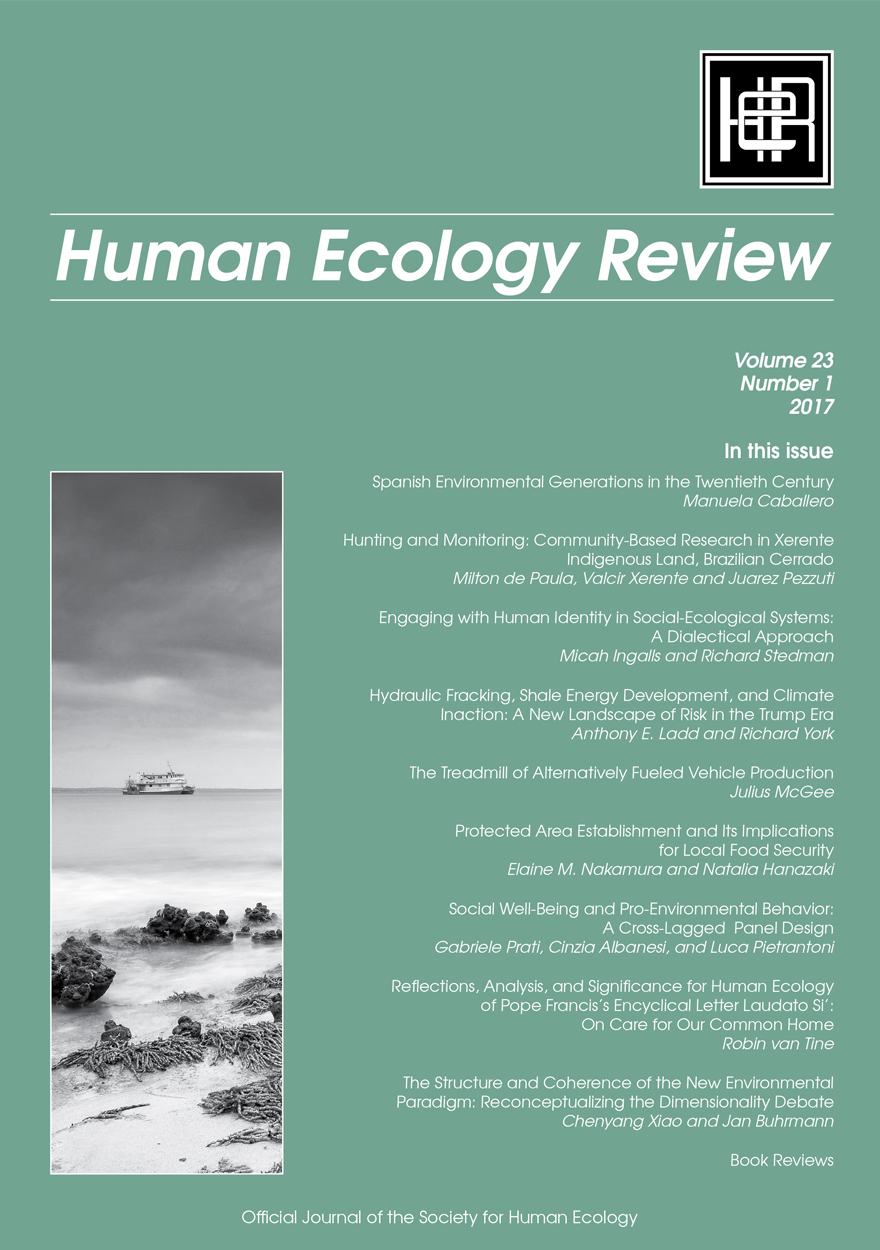
Human Ecology Review: Volume 23, Number 1 »
Publication date: September 2017
Human Ecology Review is a semi-annual journal that publishes peer-reviewed interdisciplinary research on all aspects of human–environment interactions (Research in Human Ecology). The journal also publishes essays, discussion papers, dialogue, and commentary on special topics relevant to human ecology (Human Ecology Forum), book reviews (Contemporary Human Ecology), and letters, announcements, and other items of interest (Human Ecology Bulletin). Human Ecology Review also publishes an occasional paper series in the Philosophy of Human Ecology and Social–Environmental Sustainability.
Download for free
Not available for purchase
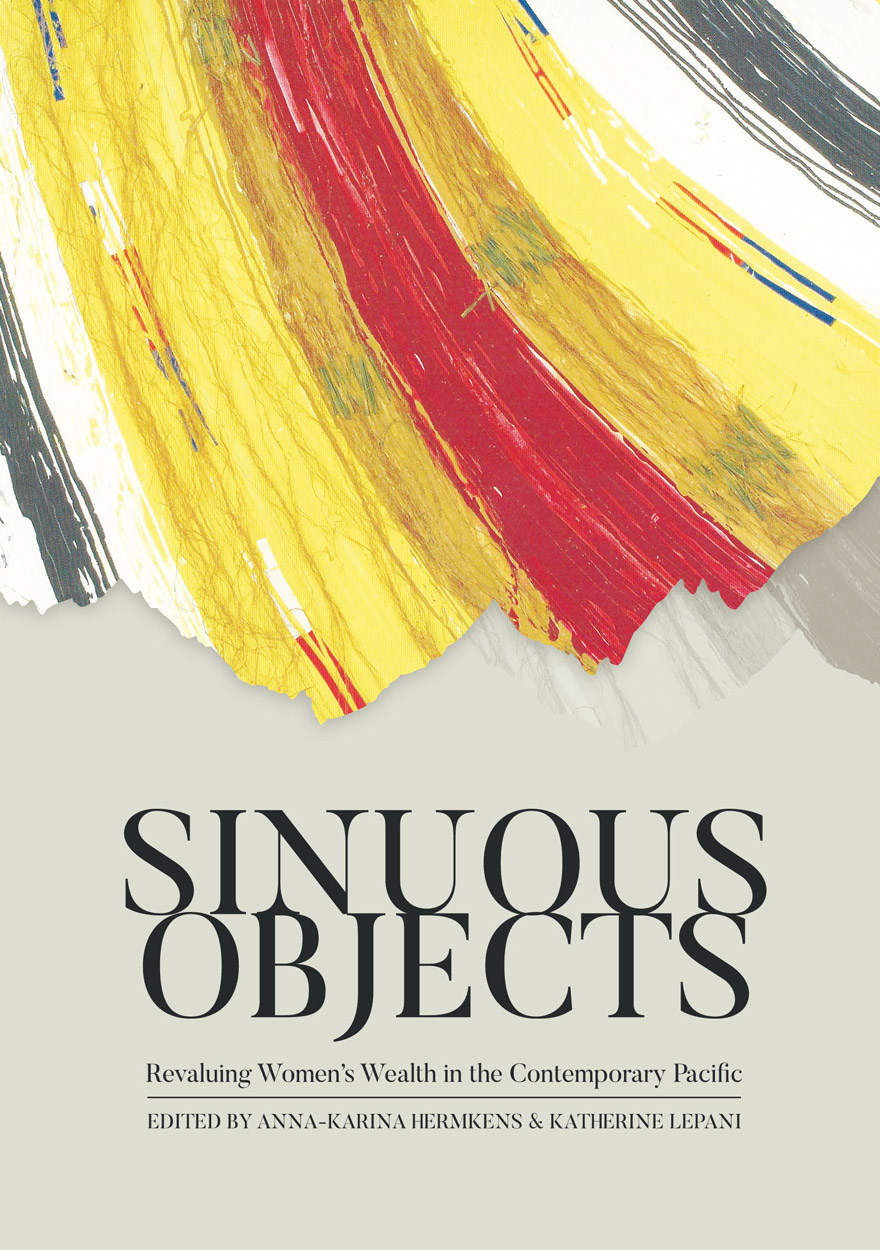
Sinuous Objects »
Revaluing Women’s Wealth in the Contemporary Pacific
Edited by: Anna-Karina Hermkens, Katherine Lepani
Publication date: August 2017
Some 40 years ago, Pacific anthropology was dominated by debates about ‘women’s wealth’. These exchanges were generated by Annette Weiner’s (1976) critical reappraisal of Bronisław Malinowski’s classic work on the Trobriand Islands, and her observations that women’s production of ‘wealth’ (banana leaf bundles and skirts) for elaborate transactions in mortuary rituals occupied a central role in Trobriand matrilineal cosmology and social organisation. This volume brings the debates about women’s wealth back to the fore by critically revisiting and engaging with ideas about gender and materiality, value, relationality and the social life and agency of things. The chapters, interspersed by three poems, evoke the sinuous materiality of the different objects made by women across the Pacific, and the intimate relationship between these objects of value and sensuous, gendered bodies.
In the Epilogue, Professor Margaret Jolly observes how the volume also ‘trace[s] a more abstract sinuosity in the movement of these things through time and place, as they coil through different regimes of value … The eight chapters … trace winding paths across the contemporary Pacific, from the Trobriands in Milne Bay, to Maisin, Wanigela and Korafe in Oro Province, Papua New Guinea, through the islands of Tonga to diasporic Tongan and Cook Islander communities in New Zealand’. This comparative perspective elucidates how women’s wealth is defined, valued and contested in current exchanges, bride-price debates, church settings, development projects and the challenges of living in diaspora. Importantly, this reveals how women themselves preserve the different values and meanings in gift-giving and exchanges, despite processes of commodification that have resulted in the decline or replacement of ‘women’s wealth’.
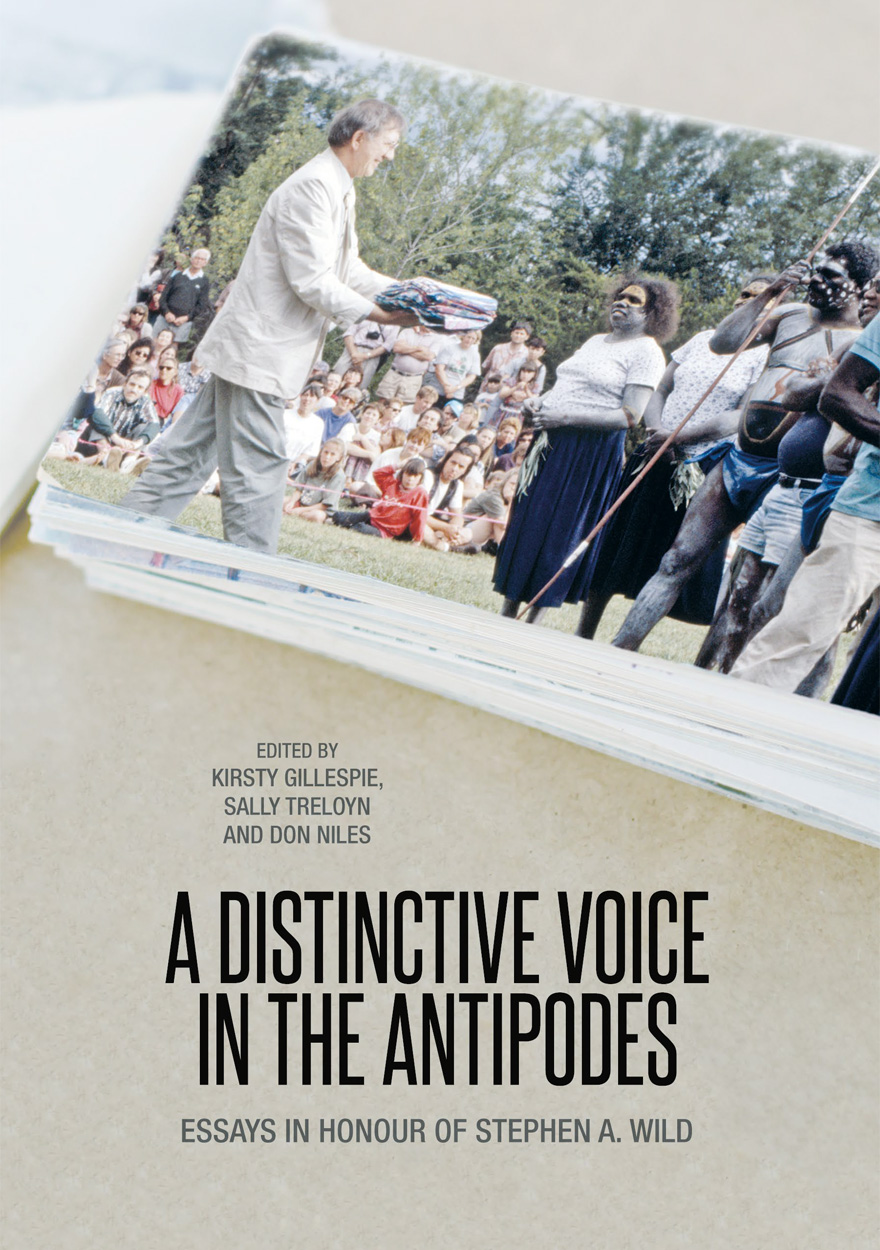
A Distinctive Voice in the Antipodes »
Essays in Honour of Stephen A. Wild
Publication date: July 2017
This volume of essays honours the life and work of Stephen A. Wild, one of Australia’s leading ethnomusicologists. Born in Western Australia, Wild studied at Indiana University in the USA before returning to Australia to pursue a lifelong career with Indigenous Australian music.
As researcher, teacher, and administrator, Wild’s work has impacted generations of scholars around the world, leading him to be described as ‘a great facilitator and a scholar who serves humanity through music’ by Andrée Grau, Professor of the Anthropology of Dance at University of Roehampton, London.
Focusing on the music of Aboriginal Australia and the Pacific Islands, and the concerns of archiving and academia, the essays within are authored by peers, colleagues, and former students of Wild. Most of the authors are members of the Study Group on Music and Dance of Oceania of the International Council for Traditional Music, an organisation that has also played an important role in Wild’s life and development as a scholar of international standing.
Ranging in scope from the musicological to the anthropological—from technical musical analyses to observations of the sociocultural context of music—these essays reflect not only on the varied and cross-disciplinary nature of Wild’s work, but on the many facets of ethnomusicology today.
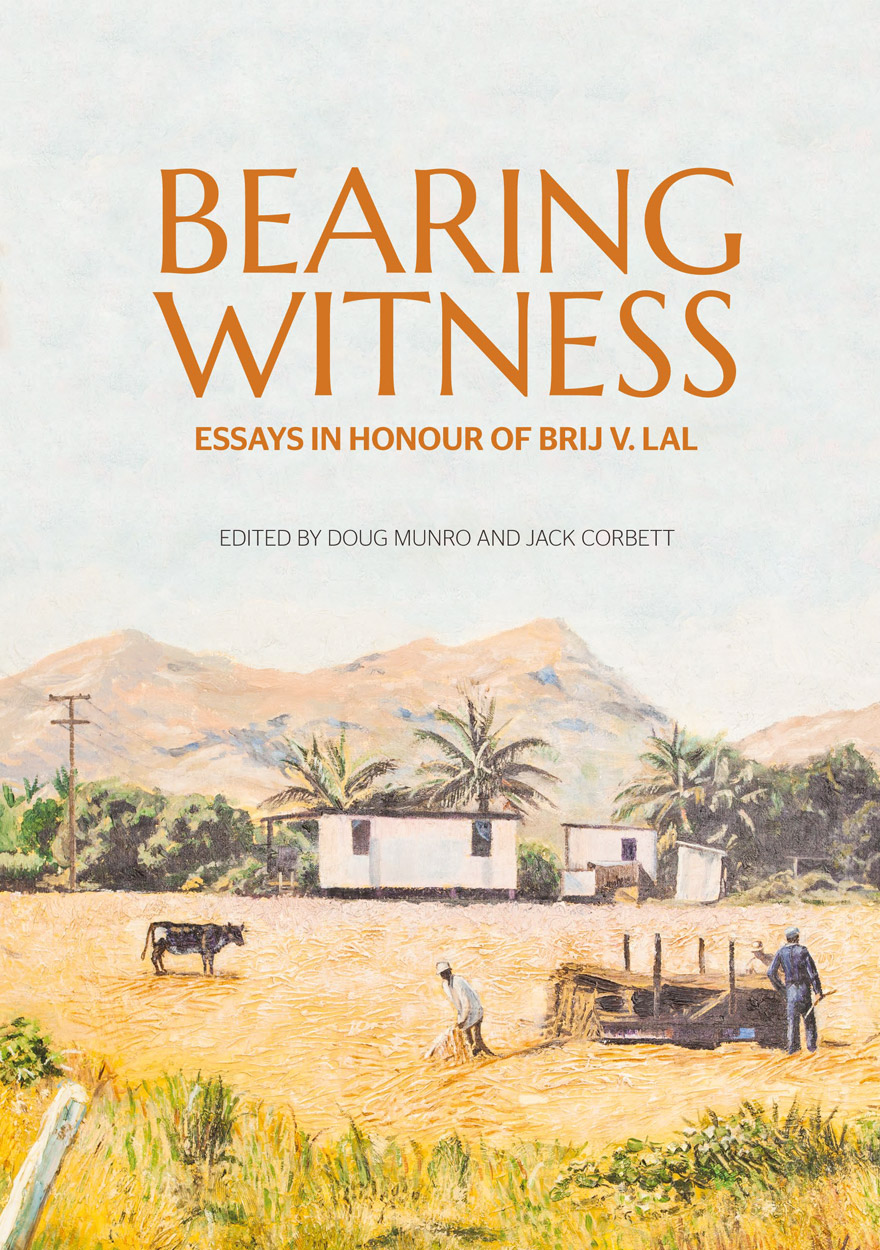
Bearing Witness »
Essays in honour of Brij V. Lal
Edited by: Doug Munro, Jack Corbett
Publication date: July 2017
"Brij V. Lal is a singular scholar. His work has spanned disciplines—from history to politics—and genres—from conventional monograph history, to participant history, political commentary, encyclopaedia, biography and faction. Brij is without doubt the most eminent scholar Fiji has ever produced. He also remains the most significant public intellectual of his country, despite having been banned from entering it in 2009. He is also one of the leading Pacific historians of his generation, and an internationally recognised authority on the Indian diaspora. This Festschrift volume celebrates, reflects upon and extends the life and work of this colourful scholar. The essays, whose contributors are drawn from across the globe, do more than review Brij’s work; they also probe his contribution to both scholarly and political life. This book will therefore serve as an invaluable guide for readers from all walks of life seeking to better situate and understand the impact of Brij’s scholarly activism on Fiji and beyond."
— Clive Moore, University of Queensland
"It is a pleasure to commend this collection of very different essays that celebrate, reflect upon and extend the life and work of a remarkable scholar. Although I have had, at times, a close association with Brij Lal’s life and work, I have learned much from reading this book. It provokes further thought about the course of democracy in Fiji, and the very sorry state and future of Pacific history and the humanities in academia. Here is a timely assertion of the significance and major contribution that courageous scholars such as Brij have made to the study and public awareness of these areas of concern."
— Jacqueline Leckie, University of Otago

Ten Thousand Years of Cultivation at Kuk Swamp in the Highlands of Papua New Guinea »
Publication date: July 2017
Kuk is a settlement at c. 1600 m altitude in the upper Wahgi Valley of the Western Highlands Province of Papua New Guinea, near Mount Hagen, the provincial capital. The site forms part of the highland spine that runs for more than 2500 km from the western head of the island of New Guinea to the end of its eastern tail. Until the early 1930s, when the region was first explored by European outsiders, it was thought to be a single, uninhabited mountain chain. Instead, it was found to be a complex area of valleys and basins inhabited by large populations of people and pigs, supported by the intensive cultivation of the tropical American sweet potato on the slopes above swampy valley bottoms.
With the end of World War II, the area, with others, became a focus for the development of coffee and tea plantations, of which the establishment of Kuk Research Station was a result. Large-scale drainage of the swamps produced abundant evidence in the form of stone axes and preserved wooden digging sticks and spades for their past use in cultivation. Investigations in 1966 at a tea plantation in the upper Wahgi Valley by a small team from The Australian National University yielded a date of over 2000 years ago for a wooden stick collected from the bottom of a prehistoric ditch.
The establishment of Kuk Research Station a few kilometres away shortly afterwards provided an ideal opportunity for a research project.
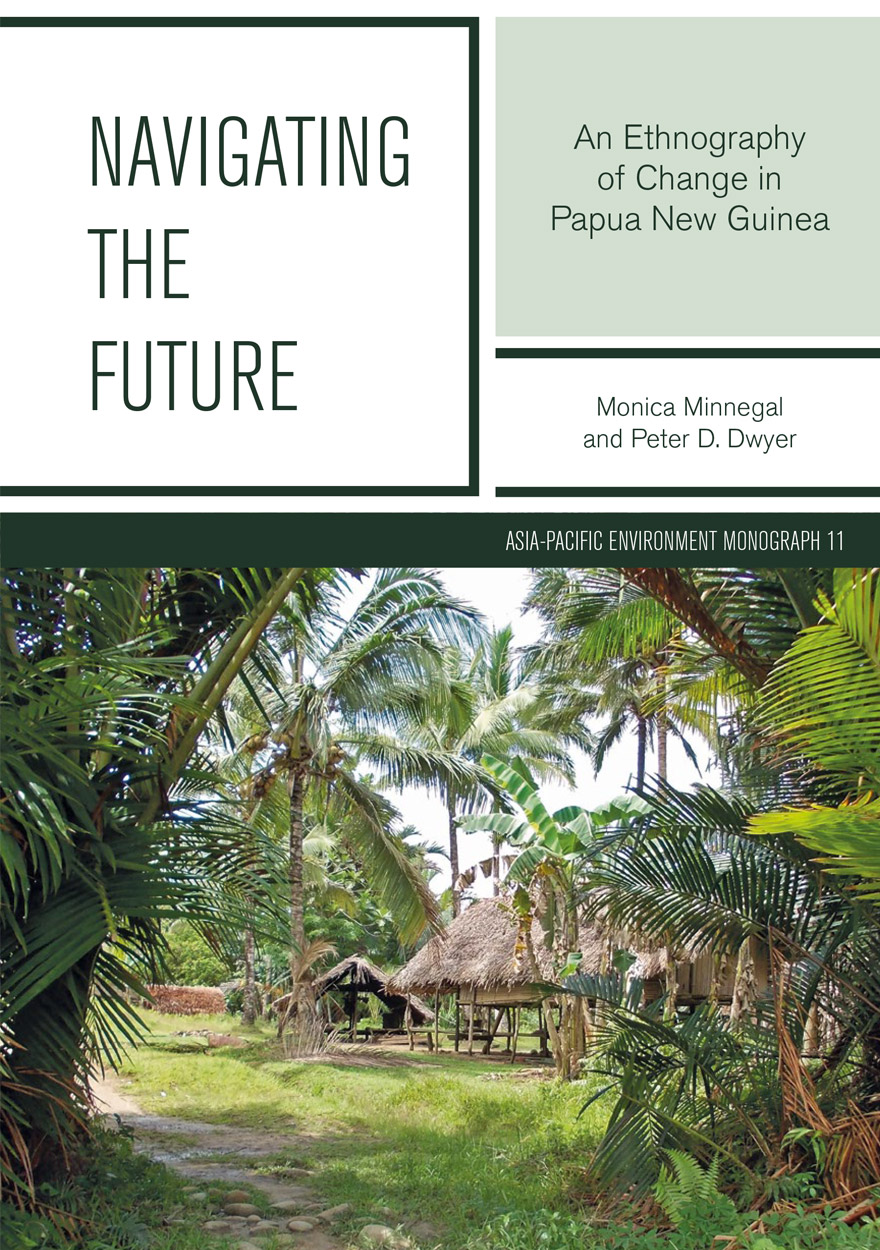
Navigating the Future »
An Ethnography of Change in Papua New Guinea
Authored by: Monica Minnegal, Peter D. Dwyer
Publication date: June 2017
Navigating the Future draws on long-term ethnographic fieldwork with Kubo people and their neighbours, in a remote area of Papua New Guinea, to explore how worlds are reconfigured as people become increasingly conscious of, and seek to draw into their own lives, wealth and power that had previously lain beyond their horizons. In the context of a major resource extraction project—the Papua New Guinea Liquefied Natural Gas (PNG LNG) Project–taking shape in the mountains to the north, the people in this area are actively reimagining their social world. This book describes changes in practice that result, tracing shifts in the ways people relate to the land, to each other and to outsiders, and the histories of engagement that frame those changes. Inequalities are emerging between individuals in access to paid work, between groups in potential for claiming future royalties, and between generations in access to information. As people at the village of Suabi strive to make themselves visible to the state and to petroleum companies, as legal entities entitled to receive benefits from the PNG LNG Project, they are drawing new boundaries around sets of people and around land and declaring hierarchical relationships between groups that did not exist before. They are struggling to make sense of a bureaucracy that is foreign to them, in a place where the state currently has minimal presence. A primary concern of Navigating the Future is with the processes through which these changes have emerged, as people seek to imagine—and work to bring about—a radically different future for themselves while simultaneously reimagining their own past in ways that validate those endeavours.
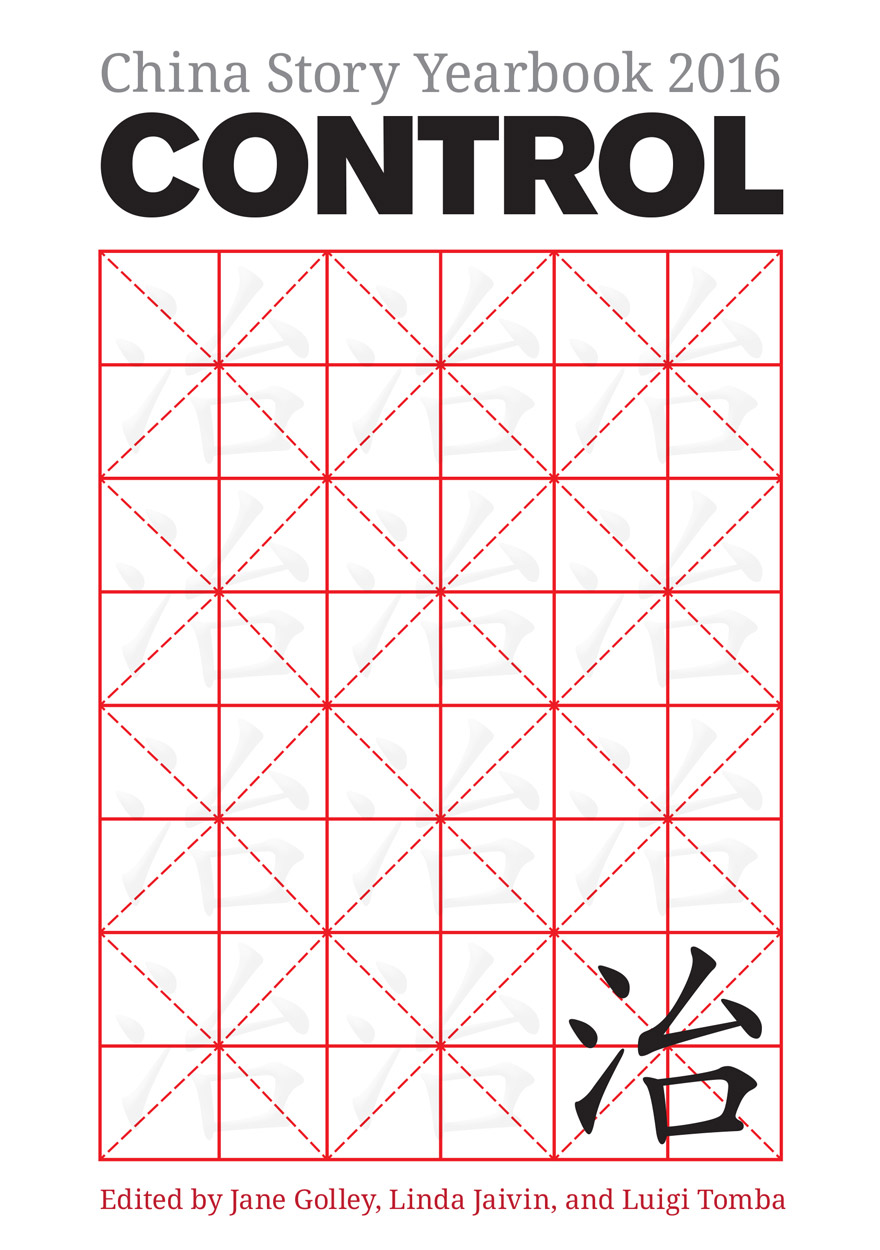
Control »
Publication date: June 2017
‘More cosmopolitan, more lively, more global’ is how the China Daily summed up the year 2016 in China.
It was also a year of more control. The Chinese Communist Party laid down strict new rules of conduct for its members, continued to assert its dominance over everything from the Internet to the South China Sea and announced a new Five-Year Plan that Greenpeace called ‘quite possibly the most important document in the world in setting the pace of acting on climate change’.
The China Story Yearbook 2016: Control surveys the year in China’s economy, population planning, law enforcement and reform, environment, Internet, medicine, religion, education, historiography, foreign affairs, and culture, as well as developments in Taiwan and Hong Kong.

International Review of Environmental History: Volume 3, Issue 1, 2017 »
Edited by: James Beattie
Publication date: June 2017
International Review of Environmental History takes an interdisciplinary and global approach to environmental history. It encourages scholars to think big and to tackle the challenges of writing environmental histories across different methodologies, nations, and time-scales. The journal embraces interdisciplinary, comparative and transnational methods, while still recognising the importance of locality in understanding these global processes.
The journal’s goal is to be read across disciplines, not just within history. It publishes on all thematic and geographic topics of environmental history, but especially encourage articles with perspectives focused on or developed from the southern hemisphere and the ‘global south’.
Download for free
Not available for purchase



